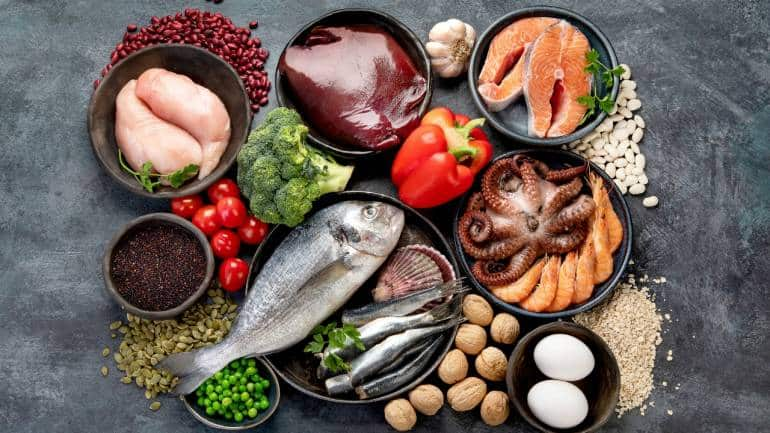



From metabolism and reproduction to regulating your ability to cope with stress, hormones are chemicals produced by the endocrine system to control major processes in your body. Maintaining hormonal balance is crucial for overall well-being and optimal functioning of the body. So when you develop a hormonal imbalance, even tiny shifts in hormone levels can lead to big physical and psychological issues, ranging from mood swings, weight gain, to fatigue, and even fertility problems. Among many other factors, nutrition plays a significant role in regulating hormone levels.
How to stop hormonal imbalanceInclude these essential nutrients in your daily diet.
Omega-3 fatty acids:Omega-3 fatty acids are essential polyunsaturated fats that play a vital role in hormone production and regulation. These healthy fats are found in fatty fish such as salmon, sardines, and mackerel, as well as in walnuts, flaxseeds, and chia seeds. Omega-3 fatty acids help reduce inflammation, which is often associated with hormonal imbalances. They also support the production of healthy prostaglandins, which are hormone-like substances that help regulate various bodily functions.
Vitamin D: Diet tips: Foods rich in Vitamin D helps the body produce and release hormones, including insulin, estrogen, testosterone, and thyroid hormones (Image: Canva)
Diet tips: Foods rich in Vitamin D helps the body produce and release hormones, including insulin, estrogen, testosterone, and thyroid hormones (Image: Canva)Vitamin D is not only essential for bone health but also plays a crucial role in hormone regulation. It helps the body produce and release hormones, including insulin, estrogen, testosterone, and thyroid hormones. Additionally, vitamin D receptors are found in various tissues throughout the body, indicating its involvement in numerous physiological processes. Exposure to sunlight is the primary source of vitamin D, but it can also be obtained from foods like fatty fish, fortified dairy products, and egg yolks.
Magnesium:Magnesium is a mineral that is involved in over 300 enzymatic reactions in the body, including those related to hormone production and regulation. It plays a vital role in supporting the health of the adrenal glands, which are responsible for producing stress hormones like cortisol. Magnesium also aids in balancing blood sugar levels, which is crucial for preventing insulin resistance and hormonal disruptions. Good dietary sources of magnesium include leafy green vegetables, nuts, seeds, whole grains, and legumes.
B vitamins: Diet tips: Foods rich in B vitamins include whole grains, legumes, leafy green vegetables, nuts, seeds, and animal products (Image: Canva)
Diet tips: Foods rich in B vitamins include whole grains, legumes, leafy green vegetables, nuts, seeds, and animal products (Image: Canva)The group of B vitamins, including vitamins B6, B12, and folate, are essential for hormone synthesis and metabolism. Vitamin B6, in particular, is involved in the production of neurotransmitters and steroid hormones. It also aids in the detoxification of estrogen, preventing its accumulation in the body. Foods rich in B vitamins include whole grains, legumes, leafy green vegetables, nuts, seeds, and animal products.
Zinc: Diet tips: Zinc deficiency has been associated with menstrual irregularities, fertility issues, and imbalances in estrogen and progesterone levels (Image: Canva)
Diet tips: Zinc deficiency has been associated with menstrual irregularities, fertility issues, and imbalances in estrogen and progesterone levels (Image: Canva)Zinc is a trace mineral that plays a crucial role in hormonal health and balance. It is involved in the production, release, and metabolism of various hormones, including insulin, thyroid hormones, and sex hormones. Zinc deficiency has been associated with menstrual irregularities, fertility issues, and imbalances in estrogen and progesterone levels. Good dietary sources of zinc include oysters, lean meats, poultry, legumes, nuts, seeds, and whole grains.
Foods to avoid in case of hormonal imbalanceHormonal imbalance can often be triggered by consuming certain food items. If you wish to steer clear of hormonal issues, try cutting out red meat, soy products, dairy products, caffeine, cruciferous vegetables like cauliflower, broccoli, and kale, and processed food including cookies, bread, and more, from your diet.
Discover the latest Business News, Sensex, and Nifty updates. Obtain Personal Finance insights, tax queries, and expert opinions on Moneycontrol or download the Moneycontrol App to stay updated!
Find the best of Al News in one place, specially curated for you every weekend.
Stay on top of the latest tech trends and biggest startup news.